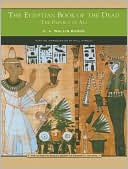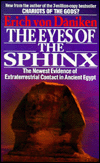Inside Egypt: The Land of the Pharaohs on the Brink of a Revolution
First published in 2008 with the subtitle The Land of the Pharaohs on the Brink of a Revolution, this strikingly prophetic and critically acclaimed book caused an international media firestorm when it was banned by former Egyptian dictator Hosni Mubarak. When the revolution it uniquely predicted took place in January 2011, Inside Egypt became essential reading for anyone wanting to understand what led to revolutionary upheaval in the Arab world's most populous country. In a new Afterword, the...
Search in google:
The government of Egypt banned Inside Egypt in 2008—the first time a book on Egyptian politics had been banned in the country in decades—and quickly rescinded it after the media firestorm that followed.Most experts believe that in the next year or so, Hosni Mubarak will step down and that his son, Gamal is the favorite to take the reins. In Inside Egypt, John Bradley examines the junctions of Egyptian politics and society as they slowly disintegrate under the twin pressures of a ruthless military dictatorship at home and a flawed Middle East policy in Washington. Nader Entessar Copyright 2007 Reed Business Information - School Library Journal Egypt has long played a pivotal role in the Arab world's cultural and political development. Today, one out of four Arabs is an Egyptian. Furthermore, Egypt is crucial to Washington's strategic goals in the Middle East. However, as journalist Bradley (Saudi Arabia Exposed) demonstrates, Egypt suffers from a host of sociopolitical and economic problems that are undermining the government's stability. In this highly readable and thoughtful volume, Bradley provides a devastating critique of Egypt's current dictatorial government. He traces the evolution of Egypt's authoritarianism from the end of the monarchy in 1952 (and the emergence of Nasserism) to the Mubarak regime. His fluency in Egyptian Arabic allows him to see Egypt and its myriad social problems through the eyes of ordinary people who are the real victims of the pervasive corruption, torture, and other degradation of life in that country. In addition, as Bradley clarifies, its pro-Western dictatorship makes Egypt Washington's favored destination for the practice of "rendition," which sends individuals overseas to be tortured. This book is aimed at the general reader, but scholars would also benefit from the author's keen insight. Recommended for academic and public libraries.
1 A Failed Revolution 12 The Brothers 493 Sufis and Christians 814 The Bedouin 1015 Torture 1176 Corruption 1477 Lost Dignity 1698 Egypt After Mubarak 201A Note on Sources 231Index 233
\ School Library JournalEgypt has long played a pivotal role in the Arab world's cultural and political development. Today, one out of four Arabs is an Egyptian. Furthermore, Egypt is crucial to Washington's strategic goals in the Middle East. However, as journalist Bradley (Saudi Arabia Exposed) demonstrates, Egypt suffers from a host of sociopolitical and economic problems that are undermining the government's stability. In this highly readable and thoughtful volume, Bradley provides a devastating critique of Egypt's current dictatorial government. He traces the evolution of Egypt's authoritarianism from the end of the monarchy in 1952 (and the emergence of Nasserism) to the Mubarak regime. His fluency in Egyptian Arabic allows him to see Egypt and its myriad social problems through the eyes of ordinary people who are the real victims of the pervasive corruption, torture, and other degradation of life in that country. In addition, as Bradley clarifies, its pro-Western dictatorship makes Egypt Washington's favored destination for the practice of "rendition," which sends individuals overseas to be tortured. This book is aimed at the general reader, but scholars would also benefit from the author's keen insight. Recommended for academic and public libraries.\ —Nader Entessar Copyright 2007 Reed Business Information\ \ \ \ \ \ Kirkus ReviewsJournalist Bradley (Saudi Arabia Exposed, 2005) trains a sharp reportorial eye on the nearly failed nation-state in the cross hairs of world conflict. The author doesn't dwell too long on Egypt's storied past. Instead, he gives a blistering overview of what it's like to live today in this autocratic, hopelessly corrupt society. The Egypt he depicts is a place where anyone can be jailed or tortured at any time for no reason, where Islamic fundamentalism is slowly gaining a foothold among people formerly proud of their diverse heritage, where in some places the only viable form of employment for young men is prostitution, both gay and straight. Bradley also examines why the United States spends $2 billion per year propping up President Hosni Mubarak ("the third-longest-ruling Egyptian leader in the past four thousand years"), despite his crackdowns on anything approaching democracy and his blatant favoring of anything that will bring in more tourist dollars over the best interests of the Egyptian populace. Mubarak is able to gin up American interest, the author notes, by playing up the threat of the Muslim Brotherhood, a nominally political organization that provides social services far more efficiently than the government does and wants to reinstate the Caliphate. Needless to say, Bradley isn't hopeful about the future, fearing that an Iranian-style theocracy is in the cards for a once-proud nation whose pedigree dates back more than 5,000 years. Unlikely to win the author any friends among the Egyptian political elite, but terrifically well told and extremely sobering.\ \








